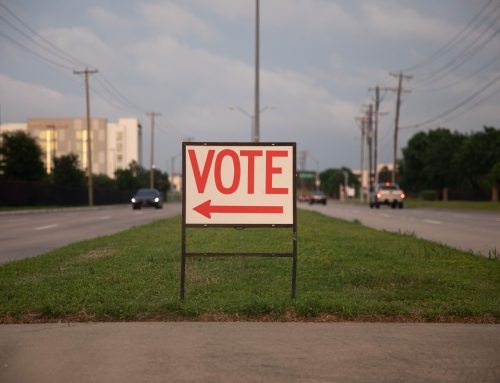How weird was last night’s town hall budget meeting at St. Thomas Aquinas? How about bizarre? Surreal? Kafkaesque?
How else to explain a meeting that saw:
• Mayor Park Cities not only attended, but praised M Streets councilwoman Angela Hunt for her service on the city council. Which, frankly, I expected to happen about as much as the mayor and I meeting at Louie’s for a cold one.
• Lakewood councilman Sheffie “Taxes are too high” Kadane said he would support a property tax increase if that’s what his constituents wanted. Though, in the next breath, he explained why a tax hike wasn’t a good idea.
• Assistant city manager A.C. Gonzalez explain that the cash-strapped city needs to borrow money to increase the capital budget by 10 percent as an economic stimulus.
But the most amazing thing? I saw the beginning of a tax revolt — from taxpayers who want to pay more taxes to restore proposed service cuts, particularly for parks and rec centers. More, after the jump: The audience in the St. Thomas gym was not just standing room only; it overflowed into the temporary hallway leading to the gym. They were not happy, and though they were mostly polite, many of those who asked questions or made comments made it clear that this budget — with its draconian cuts — was unacceptable.
Which is why Leppert was there. He has invested tremendous political capital in city manager’s Mary Suhm’s no tax increase budget, and yet the normally subservient council has apparently mustered five votes to raise property taxes. All they need is three more, and that’s not the impossibility that it seemed just a month ago. When Kadane, as loyal a supporter as Leppert has, says he’d vote for a tax increase, things have changed.
And the mayor took every opportunity to remind the audience that raising taxes was a bad idea. He said it was the wrong thing to do in a recession and would hurt working families, which was a commendable thing to say — even if it wasn’t exactly true. People who own property pay property taxes, and fewer than half of the families in Dallas own homes. In fact, we have one of the lowest home ownership rates in the country, so landlords would mostly feel the property tax sting.
Leppert’s other argument? That raising taxes wouldn’t work because we could only restore some of the cuts, and that those whose programs weren’t restored would be unhappy. “If we raise taxes,” he said, “how do we decide how to spend it?” I don’t pretend to understand this line of reasoning, since it’s his job to make those decisions, but he seemed convinced by it.
Leppert also said something that was so over the top that even the woman sitting in front of me was taken aback. And she hardly guffawed at all during the presentation. Apparently, before Leppert became mayor, no one in Dallas cared about growth and luring new business to the city. Honest. It’s in my notes, in a rambling response to a question from the audience about cuts to arts and cultural programs. This is an odd thing to say regardless, and especially odd since Leppert has lived elsewhere most of his adult life. How does he know this? I doubt that former mayors Laura Miller and Ron Kirk would agree with him.
Which brings us back to the possibility of a tax increase. Leppert said he was working to get private money to fund some of the park and rec center cuts, but the audience wasn’t appeased. There was loud applause to restore the library and arts cuts, but the loudest applause was to save the park system. Kadane said that was his top priority, and he was surprisingly passionate about it. If we get a tax hike, that’s where the money will go.
Finally, a word about the good sense and clear thinking that I saw last night. When you’ve done this as long as I have, you get cynical — not just about politicians, but about voters. And, usually, in a forum like this, the audience is mostly cranks, special interests and people who want to get out of the house. But last night’s audience wasn’t like that. It was concerned and intelligent, and it asked the right questions. What’s the point of building new libraries and arts facilities, said one, if we don’t have the money to operate them? Asked another woman: Why should we spend money on an improved water conservation plan if we don’t enforce the ordinance we have now?
Even a curmudgeon like me had to smile — especially when the politicians didn’t have an answer to those questions.





